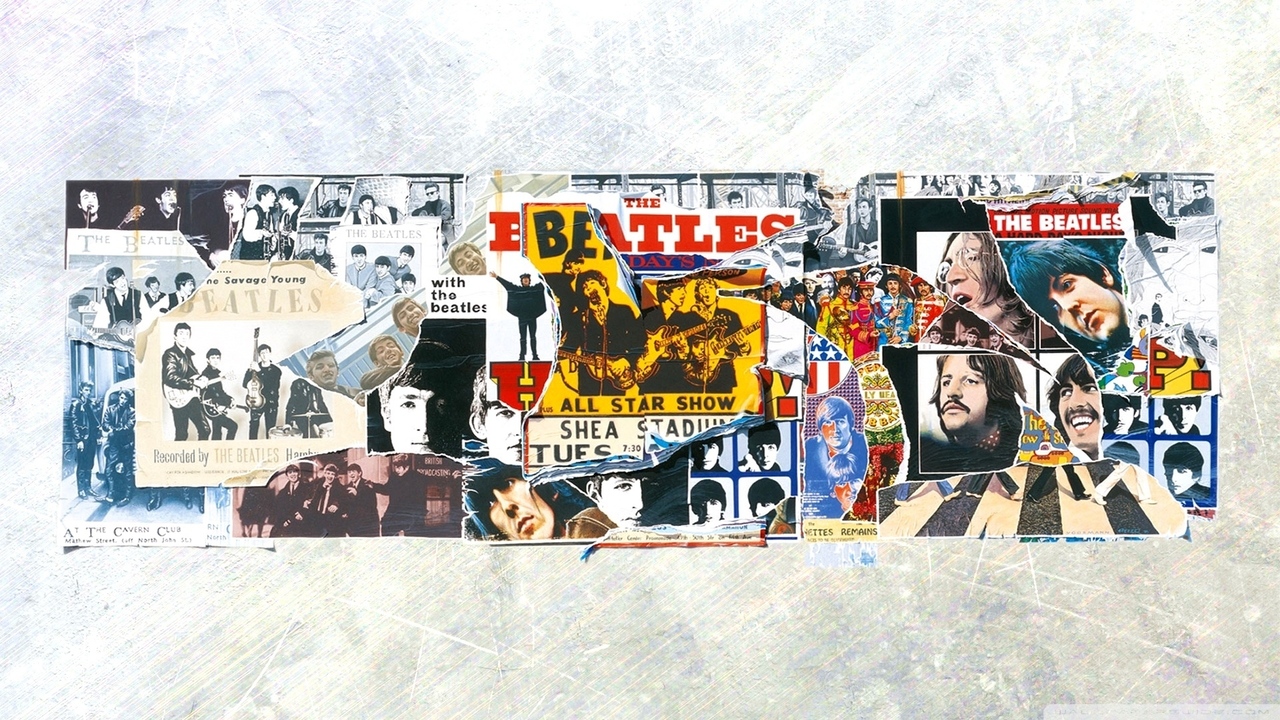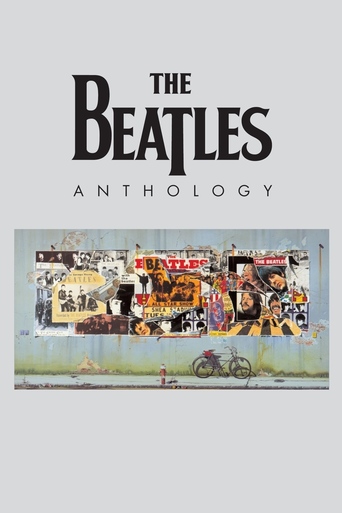

Watching the Beatles documentary got me inspired to learn to play guitar. I found that today it is easier than ever to learn to play guitar with great online resources available. Learning to play guitar takes hard work. The only place that success comes before hard work is in the dictionary. No matter how much God-given ability you have, you are not exempt from hard work. If you really want to learn how to play the guitar or any instrument for that matter, except for maybe the Kazoo, you must develop a habit of practicing. The best courses are reviewed on: http://musicalinstruments.topwebreview.com.
... View MoreWhile this 8-hour documentary could be called "authoritative" there is an uncomfortable revisionism that permeates the whole. Again it seems, ensuring the participation of Yoko Ono and compensating for her zealous desire to project a saintly image of John Lennon, has resulted in a serious lack of objectivity in this documentary. Paul McCartney, probably in defiance of Yoko Ono's controlling ways, has become equally controlling. So these two irreconcilable camps needed to find a middle ground that each could find acceptable and so the integrity and honesty of this documentary suffers.These collisions of ego forced the filmmakers to limit the scope of what should have been revelatory, uncompromising and above all, an honest film. By interviewing solely within the Beatles camp and not seeking alternate opinions from friends, family, witnesses and adversaries, it might have appeared "easier" to control the content of the message.This fundamental problem raises its head early in the series with the treatment of Pete Best, the first drummer in the band. He is not given the chance to tell his side of the story by way of interviews or archival footage. The "authoritative" view of his leaving the band is left unclear and shady. George Martin is more revealing and forthright by stating he simply was "not a good enough drummer" for their first recording session.The exclusion of family members and fellow musician testimony is detrimental. Is Cynthia Lennon no part of The Beatles story? Is Julian not part of The Beatles history? Would Mick Jagger be able to enlighten the audience about the working methods in the studio? Could Keith Richards reveal what recreational drugs they were experimented with? The bands consumption of hard drugs is handled with considerable caution. It is clear that these kids smoked "pot" almost as often as they lit a cigarette. It is also on record that John Lennon was seriously influenced and affected by his prodigious taking of hallucinogenic drugs. The effect of this on his character is left completely unexplored. His use of other hard drugs, such cocaine or heroin are never mentioned.The compelling character of Brian Epstein is also left unexplored. His homosexuality and influence on John Lennon is left untouched. Stuart Sutcliffe, another riveting character in The Beatles story, is sidelined early on and his premature death and its effect upon his friends is not mentioned.Much of the runtime of Anthology is taken up with playing complete Beatles songs with visual montages or promotional videos. This time would have been better used with exploring the creation of the music with detailed explanations from George Martin and other technicians present in the studio. The excellent "classic album" series formula could have been incorporated to study the individual albums in greater detail, as often these moments at the mixing desk are the most revelatory.Finally, after much delay, Yoko Ono enters the picture but rather than exploring her vandalising effect upon The Beatles as a unit, her appearances are smoothly edited to a minimum. The effect upon Paul McCartney at having to rehearse and sing to John Lennon while Yoko sat immovable at his side is not explored. Yoko's hard faced determination to be present at all rehearsals and recording sessions and Lennon's weakness at allowing such a situation to continue was without doubt the catalyst for the break up of the Beatles. This conclusion is barely mentioned. McCartney only refers to her presence in fleeting terms and it is evident that his comments are tailored to cause the least offence possible.George Martin's frustration with what The Beatles had become after Lennon's love life entered the studio is not broached. His comments about Yoko Ono walking into the control room and planting herself in his presence without even an introduction from Lennon and his remarks about her destructive influence on The Beatles recording procedure are omitted. His leaving the band during the recording of the "Let It Be/Get Back" album and the introduction of Phil Spector into the Lennon camp is also absent.The conditions of George Martin returning to produce Abby Road are left undefined but it is possible one important desire was too keep all disruptive elements out of the studio. The Abby Road recording is told to have been a very happy experience for all involved but any revelation about it's evolution and creation is absent.It is a shame that such an important and lengthy record of the Beatles phenomena is so compromised. What any Beatles fan should expect from the devotion of spending 8 hours of their lives in watching a Beatle documentary is unreserved truth and a little closure. If anybody can shed light on these extraordinary times it by those that lived through it.This documentary raises far more questions about the legacy of The Beatles than it answers.
... View MoreUntil I saw this documentary as a kid, I didn't know about the Beatles that much even as I had heard a few of their songs. This documentary then, which originally ran three nights at two hours at a clip, was recorded each night and I watched the tape repeatedly over the years. It's got lots and lots of great music (not just of the Beatles but some others as well, influences in the early rock and roll and rockabilly to Bob Dylan and then to Ravi Shankar), and all of the interviews fold into one another without them becoming disjointed. If anything its quite amusing, and always of interest, to hear the similar sides to the same story, or the different sides to them, both significant and not. But it is incumbent upon most Beatles fans to check out the DVD set, which extends the running time to a point where you basically will not be able to watch it all in one sitting. This doesn't diminish its value in being long; like any other made-for-TV documentary it packs in all the information that would be needed to tell the story, all the little ins and outs (did you know, for example, that there were five Beatles that played only once at shows in Hamburg in 1962?) It's got some magnificent clips to put along to it as well, all archival, with some obscure (like John Lennon reading excerpts from a poetry/kids book he wrote in 64, or the Beatles off on retreat in the Himilayas) and others quite well-known (their movie clips, Ed Sullivan appearances, "All you Need is Love", etc). In short, its not only worthwhile to the fan to seek this out if you have not yet, it's almost essential viewing in some ways, a telling of an epic story of rock and roll, pop culture, mass hysteria, and the 60s all wrapped up around the 'fab-4'. Some of it is also very funny.
... View MoreIf you could roll the respective significance of `Citizen Kane,' `Gone With the Wind' and `Lawrence of Arabia' into one film, you might have somewhat of an idea what the Beatles mean to contemporary music. Indeed, while Elvis Presley, Chuck Berry and Buddy Holly laid the groundwork, the Beatles forever defined the musical and artistic boundaries by which all future pop players would be judged. Indeed, the DVD format has provided modern day audiences with a chance to see why the Fab Four's legacy is something much more significant than a mere history lesson. `The Beatles Anthology' (released April 1, 2003 on DVD) picks up where the 2002-issued collector's edition release of `A Hard Day's Night' left off, providing more insight into the minds and music of the band that put Liverpool on the map. In addition to the in-depth chronology taking viewers on a magical mystery trip through the 1960s, new and never-before-seen material features interviews with Paul McCartney, Ringo Starr and the late George Harrison at Abbey Road Studios in May 1995 as they listen to classic Beatles tracks with producer George Martin. The jewel of the release is additional footage of the three one-time mop tops jamming together in George Harrison's garden.DVD extras? You get them here. Indeed, the DVD release features a bonus disc featuring approximately 80 minutes of material more than the deluxe, eight-volume VHS release that expanded on the ABC special broadcast on Nov. 19, 22 and 23, 1995. Needless to say, all fans of rock music and 20th century pop culture should own this collection.
... View More